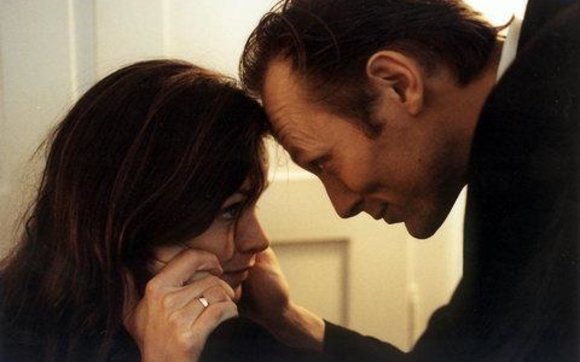Kira
 Wednesday, January 9, 2008 at 12:22
Wednesday, January 9, 2008 at 12:22 Back in the golden days of necromancers and exorcists, a certain subsection of people was thought to be steered by unspeakable things. They would rave and rant, act irresponsibly and unpredictably, and smash apart relationships, families, homes, and dreams. Having successfully isolated themselves from everyone else, including those who loved them and wished them only happiness, they (collectively termed “the possessed”) would then almost invariably turn towards bolder violations of the law. Idle hands are the Devil’s work, the Devil made me do it, I was not myself, and so forth. And because we cannot possibly match wits with Old Nick, many of them met horrible deaths at the hands of inquisitors, mobs, and other enforcement teams. Now it is believed that no demons were ever involved. Brain damage and syphilis have replaced Beelzebub and succubus, and while these poor people (now known as “the mentally ill”) have not become any less helpless, society at large has become more empowered. Lock up them in a sanitarium, apply copious amounts of uppers and downers in some secret binary combination, scare them straight with pictures of ink blots, and discharge them back into the world benumbed but docile. Surely, they are many who are helped by modern science’s tools and techniques, but many others (American streets are often their residence) are set free of everything except themselves. As a rule, they have only one or two goals in mind. But these goals are necessarily unattainable, because they and their goals are so far from one another as to be in different worlds. That they try nonetheless to achieve these aims, at whatever the cost, has become one of the most famous definitions of insanity.
Ole Christian Madsen’s Kira is about a woman (Stine Stengade), a young vibrant mother and wife, who is coming home. We learn very early on where she spent the last year, and why her two little boys cannot possibly understand. Her tall, handsome, praying mantis of a husband Mads (Lars Mikkelsen) is all too eager to have her back, perhaps because he wants to move on from some other part of his life, perhaps because he is tired of answering his children’s questions, but also because he really does love her. He treats her to an old–fashioned hero’s welcome, as if she had been in a war and returned home decorated and revered. Things turn predictably sour and the excuses and embarrassment, the sudden end to an otherwise civilized gathering, all of it comes rushing back. And when Kira, with the utmost sincerity, threatens the life of their young and pretty au pair, we know why Mads looks and acts like a man of infinite burdens. There is, of course, more to this story. Kira is half-Swedish, and that Swedish half has little to do with his family now, preferring the company of frivolous women and cold drinks. The chasm between father and daughter has widened to such a point that everyone – including, most unforgivably, Mads himself – sees Kira as the one at fault (after all, Kira’s father is morose, selfish and fractious, but at least he’s perfectly sane). As such, Mads treats Kira like a delinquent and grounds her. And just like a recalcitrant teenager, she then proceeds to doll herself up, wander into a bar, and take up conversation with a cynical Swede who is convinced that he will never again have a one night stand with a beautiful woman. The next day, Kira calls Mads from Malmö to inform him that the Swede was wrong.
After a brief period of mourning and accusations, an uneasy truce is reached. The upshot is that Mads needs to hold a business dinner and Kira wants to organize it. All she wants is to be a good mother and wife, and that is precisely the one thing she is most incapable of doing. She organizes it and Mads holds his breath, although by now he probably has been holding it for years. Which brings us to the last part of the film, so remarkable and right in every way that I am loath to reveal anything. I will just say that Kira writes a big, bold letter – as if, in fact, she were writing on an asylum wall – to her husband and is asked by a stranger whether she is mad. The self-awareness of being mad is, we are told, impossible for the truly mad, but Kira’s response and subsequent behavior are quite interesting. From here, a very good reason emerges for her illness (her father, bless his soul, has nothing to do with it); and, indeed, the usual English title is Kira’s reason: a love story. The original Danish, however, is simply A love story, which is far more accurate.


Reader Comments